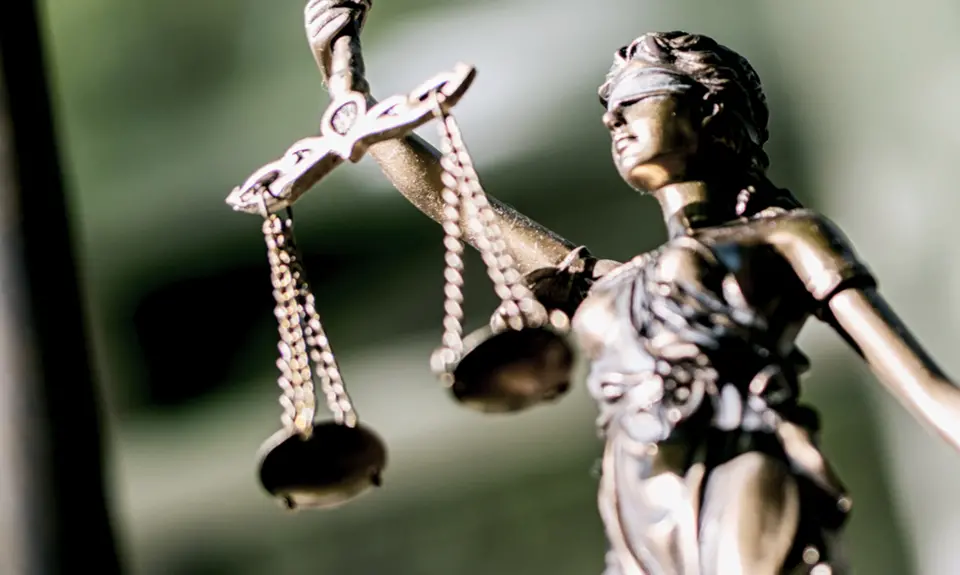“Confirmed Judges, Confirmed Fears” is a blog series documenting the harmful impact of President Trump’s judges on Americans’ rights and liberties. Cases in the series can be found by issue and by judge at this link.
Trump Third Circuit judge Peter Phipps was the deciding vote to reverse a district court and rule that other than actually attending the hearings, the public has no right of access to bail bond hearings, whether by obtaining court recordings or making their own. The decision could be applied to other types of judicial proceedings as well. The September 2020 case is Reed v. Bernard.
A nonprofit group called the Bail Fund seeks to educate the public about and promote justice in Philadelphia’s bail system. Although bail hearings can be attended by the public, there is no transcript and the municipal court does not release its audio tapes. The Bail Fund asked permission for its volunteers, who often attend bail hearings, to make their own unobtrusive audio recordings because the rapid and “jargon-filled” nature of the hearings “makes it impossible” to use notes to document what has occurred. The court refused citing a state rule, and the Bail Fund filed suit in federal court.
Based on the recognized First Amendment right of access to court proceedings and records, the district court agreed with the Bail Fund. It ruled that unless the court decided to make its own audio recordings public or provide written transcripts, Bail Fund volunteers and others can record bail hearings using small, hand-held recorders. The municipal court appealed.
With Trump judge Phipps providing the deciding vote, the Third Circuit reversed in a 2-1 decision. The majority acknowledged that there is a “First Amendment right of access” to bail hearings and other court proceedings. The majority maintained, however, that the right was limited to being able to attend the hearings themselves and to have access to “documentation already in existence,” such as records that show whether bail was granted and the amount of such bail. There is no First Amendment right, the majority ruled, to require the creation of records or to make audio recordings of proceedings, and restrictions like those of the municipal court are permissible as long as they do not “meaningfully interfere with the public’s ability to inform itself” about the proceedings.
Judge Cheryl Krause strongly dissented. She began by explaining that the majority ruling “proceeds to eviscerate” the public’s access right by defying precedent from the Supreme Court and the Third Circuit making clear that “the public is entitled to a complete and verifiable record” of what happened at such proceedings. She pointed out that the majority holding “deprives the public of access to vital information about one of the most urgent and vigorously debated issues in the modern criminal justice arena.” And she noted that the majority’s rationale “applies to every proceeding to which the right of access attaches,” not just bail hearings, with “grave consequences” for the First Amendment and "public discourse and confidence in government institutions.”
Judge Krause went on to analyze in detail the applicable precedent that supports her conclusion, including a case where the Third Circuit recognized that the public could make audiotapes of township planning meetings to which they have a right of access. It was clear that the municipal court restrictions violate even the majority’s “meaningful interference” test, she went on, since “hundreds” of bail hearings occur “around the clock” with no notice, and Bail Fund volunteers must thus go to the court “at all hours of the day and night armed only with a pen and paper—and a hope that their furious scribblings during the hearings they happen to witness will produce useful data.” And even if the First Amendment right is limited to records “already in existence,” Krause continued, the majority completely failed to explain why it was not affirming the district court order that gave the municipal court “the option of simply releasing those existing recordings to the public.”
Judge Krause emphasized that the majority’s ruling leaves “unfulfilled” the First Amendment’s “promise of ongoing access to comprehensive information about what takes place in judicial proceedings, especially those criminal proceedings that may lead to deprivation of liberty.” She concluded that the holding “conflicts with our precedent and will inflict deep and lasting harms on the right of access and the values that right serves,” including “far beyond the confines” of bail hearings to “a wide range of judicial and other government proceedings.” Those are the consequences of Trump judge Phipps’ deciding vote in this case.
